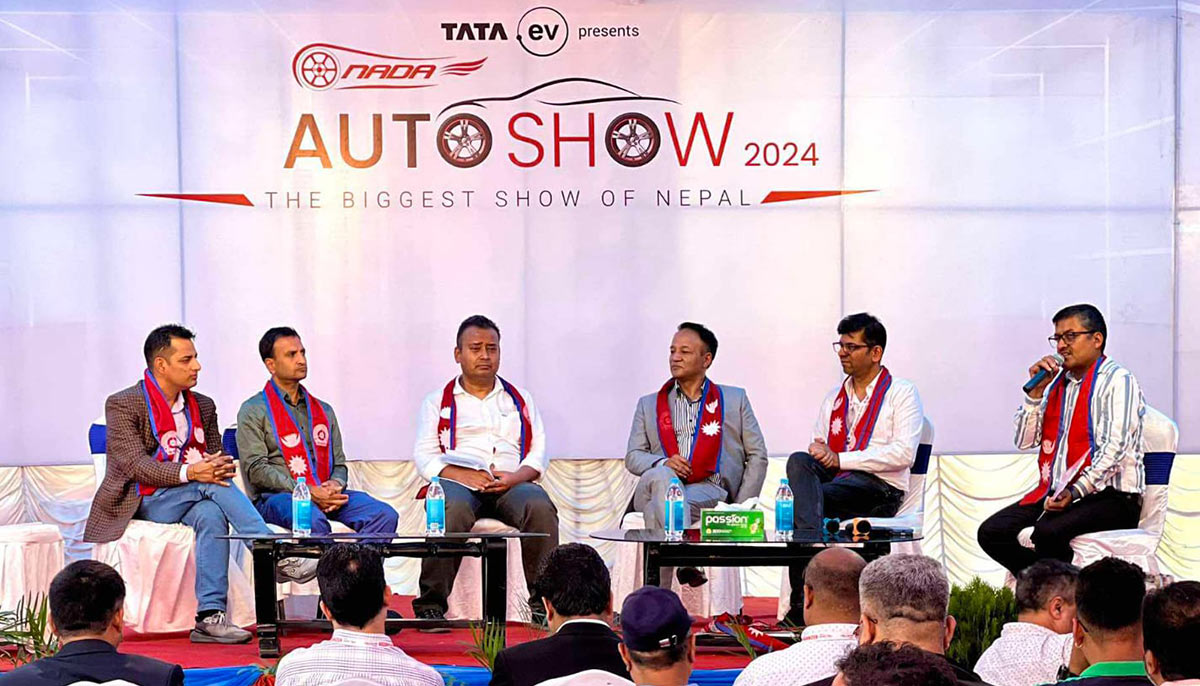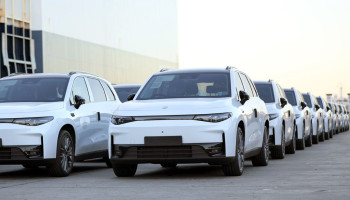Stakeholders have emphasized the need for the government and the private sector to collaborate in building the infrastructure required for electric vehicles.
At an interaction program on ‘Green Mobility and Economy’, organized in collaboration with the Journalist Association for Automobile and Mobility Nepal (JAAM Nepal) and the Nepal Automobile Dealers' Association (NADA), stakeholders highlighted the recent increase in the import of electric vehicles and stressed the necessity of joint efforts from the government and the private sector to develop the required infrastructure.
Transport and Traffic Consultant, Ashish Gajurel, pointed out that there is currently a lengthy response time for purchasing electric vehicles, and ease in this process is necessary. He urged the government to focus more on public transport rather than just private vehicles.
He said, “The government should emphasize how to enhance electric public transportation. This would make it easier for the general public to reach their destinations comfortably.”
He noted that the recent increase in electric vehicle imports has led to a reduction in petroleum imports. He mentioned that while in previous years, petroleum imports were around 300 billion rupees, this has decreased in the last fiscal year, indicating that electric vehicles are suitable for Nepal.
He further added, “The reduction in petroleum imports is due to several reasons, but the increase in electric vehicles is a major factor. This is a positive aspect as Nepal, being a country with significant potential in the energy sector, benefits from this development.”
Sagar Mani Gyawali, the Charging Network Coordinator at the Nepal Electricity Authority, stated that seven years ago there was no knowledge on how to set up charging stations, but now the authority has been able to meet the demands of the public.
He claimed that the authority has established 61 charging stations across the country recently and has been successful in promoting electric vehicles in Nepal. Although charging stations are now available in hotels to facilitate the public, general consumers still lack sufficient knowledge about chargers.
Gyawali mentioned that consumers faced some issues in the past decade, but efforts have been made to bring many chargers online in the previous decade.
Similarly, NADA Senior Vice-President, Akash Golchha noted that the private sector has been working not only on importing and selling vehicles but also on developing infrastructure. He pointed out that with the increasing import of electric vehicles, various infrastructure developments have been undertaken to stay competitive.
He said, “The market is becoming competitive. Those who provide better service will sell more, while those who do not will sell less.” He emphasized the need for every company to invest in infrastructure and train their staff to be ready to serve consumers at any time. He mentioned that new brands continue to emerge each year, and such companies need to offer good service and facilities to establish themselves.
Similarly, Siddhi Suresh Shrestha from the Transport Management Division of the Ministry of Physical Infrastructure and Transport, stated that technology evolves and the recent increase in the import of electric vehicles is positive.
He highlighted the need for collaboration between the government and the private sector to manage and organize the new technologies effectively. He also mentioned that there is currently no testing lab for electric vehicles, similar to the lack of testing facilities for petroleum vehicles.
He said, “There have been claims that vehicles are being brought to the market with reduced power, but we do not have facilities to test this. Investment is needed for this purpose. In a country like ours, significant investment in infrastructure is required to test such vehicles.”
Bhushan Tuladhar, an environmental consultant, said that the increase in electric vehicle imports is beneficial for the environment and other aspects. He stated that electric vehicles are highly suitable for Nepal and emphasized the need for organizing electric vehicles in public transportation.
He also mentioned that the government should consider battery management in recent times and claimed that the situation would not be as dire as imagined in the future. He added, “Batteries used in electric vehicles are designed to last a long time, so we do not need to worry too much about it.”


















